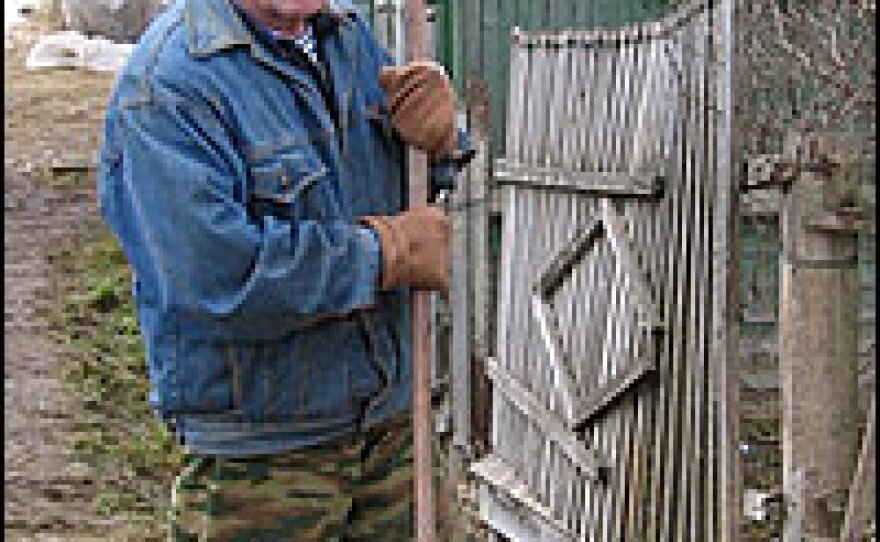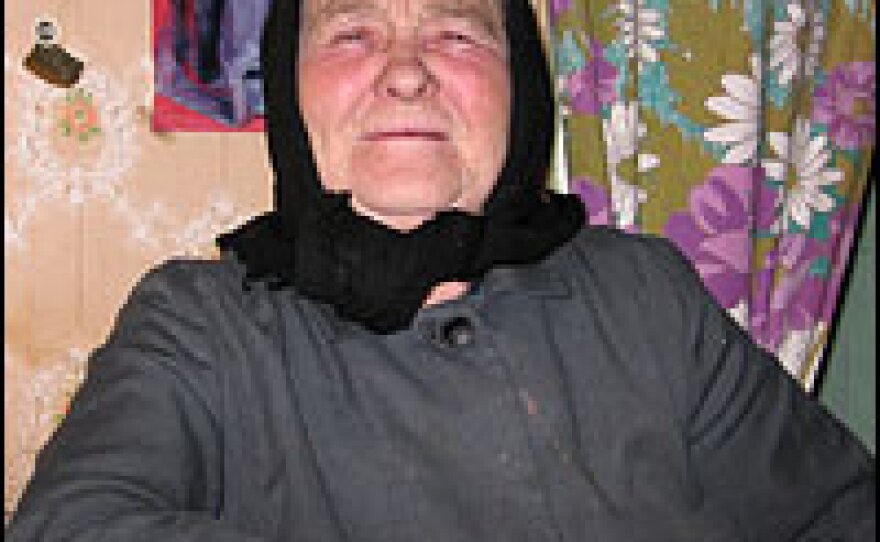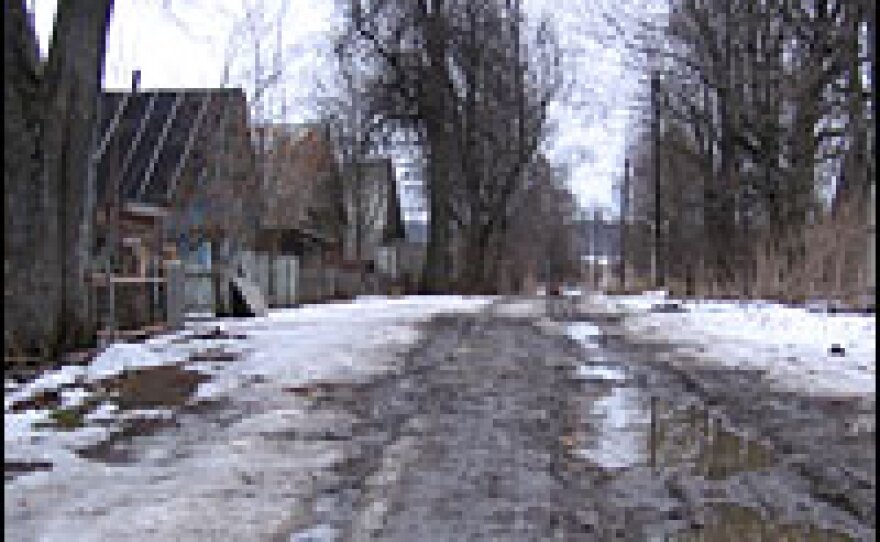

Russia's countryside is dying. Economic collapse in some regions has prompted an exodus of young people, while many older inhabitants are succumbing to alcoholism and ill-health. Those left behind are struggling not only to survive, but also to maintain some dignity in their rural isolation.
The tiny village of Lopatino, in the Tver region about 150 miles northeast of Moscow, stands amid snow-covered fields and rolling, wooded hills. There's never been much in the village — a muddy dirt track lined by wooden cottages. But now it's an apocalyptic scene: All but two of the sagging houses are empty.
Tatyana Yevseyeva, 80, lives alone in one of them. Inside her peeling house, she says she mostly survives on what she grows and raises herself, including potatoes and pigs. But despite the poverty of her surroundings, she's putting on a brave face.
"You can see, we don't live badly," she says. "I can't complain. It's just that everyone has left, there's nowhere to go for a chat. And of course, it gets very lonely. But what can you do?"
When Yevseyeva needs to buy medicine, she walks to the neighboring village, a half-day's journey away.
The countryside is populated mostly by elderly residents like Yevseyeva, who says others have either died or moved to larger towns and cities. But not Yevseyeva.
"How could I leave my home?" she says. "I built it with my own hands. When my time comes I'll die here. What's wrong with that?"
As sun melts the snow after a long, dark winter, rural life in this and other regions doesn't appear to have changed in centuries. It's radically different from fast-paced Moscow, where the country's energy industry is fuelling a major economic boom.
One of the locals' biggest complaints is the attitude of city dwellers. After the tragic death of a priest and his family in an apparent arson attack in a neighboring village, residents say the national media turned to their stereotypes.
Alexander Volkov, the head of the village, says the media told the country that Father Andrei was killed by village drunks, who were angry because he wouldn't give them money for alcohol.
"Television crews swooped in here, filmed vodka bottles they distributed themselves, then broadcast that everyone here is a drunk and a vandal," Volkov says. "Of course that hurt us."
There's mud everywhere in Tver. Russian writer Nikolai Gogol once said that Russia has two great misfortunes: fools and bad roads. The mostly dirt roads around the villages are riddled with potholes — a stark contrast to asphalted federal highways.
The young are leaving Tver because the region's main employers, Soviet-era factories and collective farms, have collapsed. Elena Orlova, an administrator of the surrounding Kuvzhinovo district, says the population has dropped to 16,000 from 20,000 in just a few years.
"Nothing is being produced here," Orlova says. "The people have lost their connection to the land. It's frightening ... There's nothing to keep the young here anymore."
Despair and poverty in the countryside is helping fuel a nationwide population crisis created by low birthrates and high mortality rates. Poor diets, smoking and rampant alcoholism are ruining lives.
If there's almost no hope that life will improve for many villagers in the Tver region, one change is noticeable amid the caving roofs and broken windows.
Here and there, new summer dachas belonging to residents of St. Petersburg and Moscow are going up. Elderly villagers say that in a decade or two, they'll be gone, leaving the land to summer visits from wealthy vacationers.
Copyright 2022 NPR. To see more, visit https://www.npr.org. 9(MDAzMjM2NDYzMDEyMzc1Njk5NjAxNzY3OQ001))







